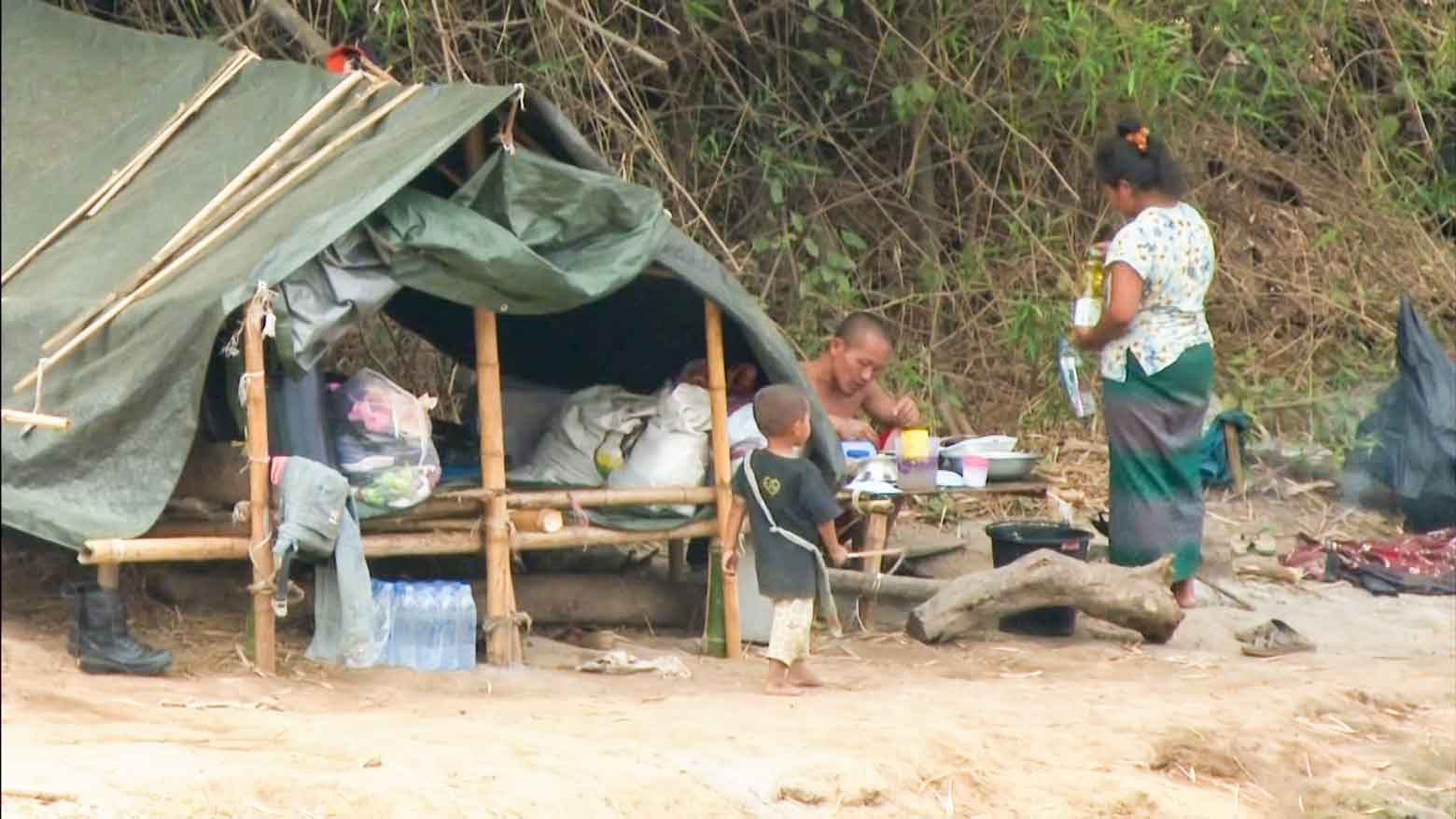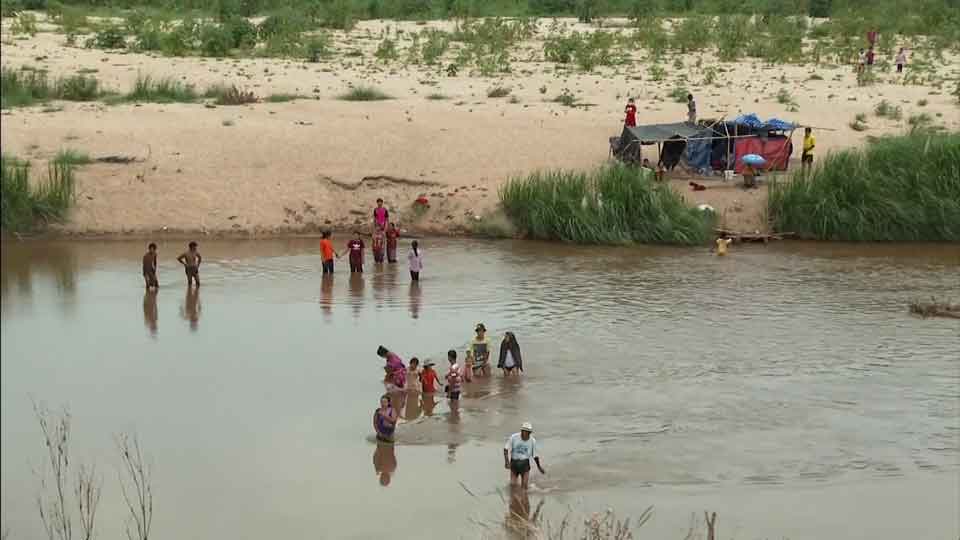
More than 2,000 Myanmar people fled to the Thai side of the border in December. Although most of them have since returned to Myanmar's Karen State, they're afraid to go back to their war-torn villages. Instead they are camped along both sides of the riverbank enduring harsh conditions and food shortages.
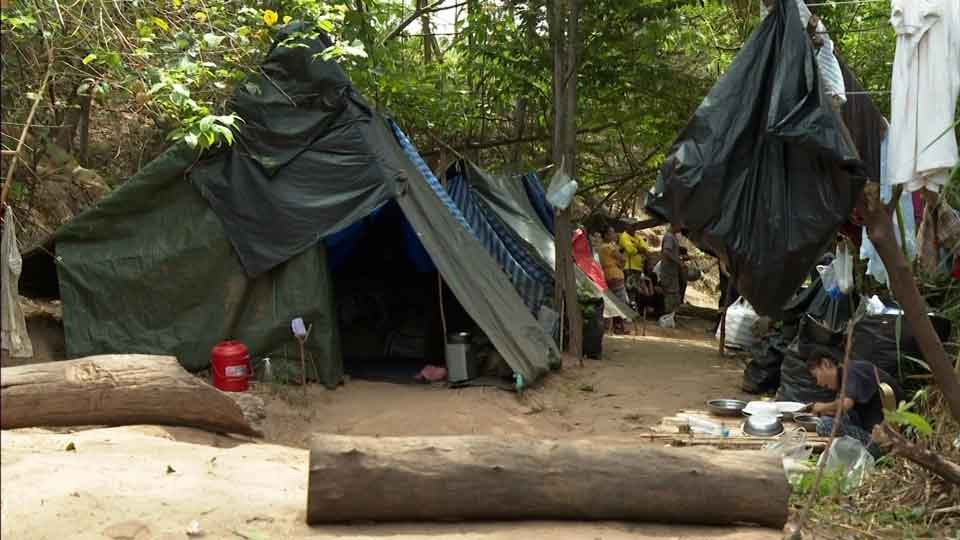
Community-based support from the Thai border town Mae Sot in Tak Province is now the main lifeline. Ko Soe Pai is a Myanmar community leader. He has led efforts to cook and distribute food and other necessities to the displaced people since December.
"I started to help about 140 people, but now the number has grown to about 4,000," he says, explaining he needs more support. "There is no organization leading the humanitarian effort. We rely on personal donations that largely come from Myanmar migrant workers in Maesot. I have less donors now and the displaced people are suffering," he adds.
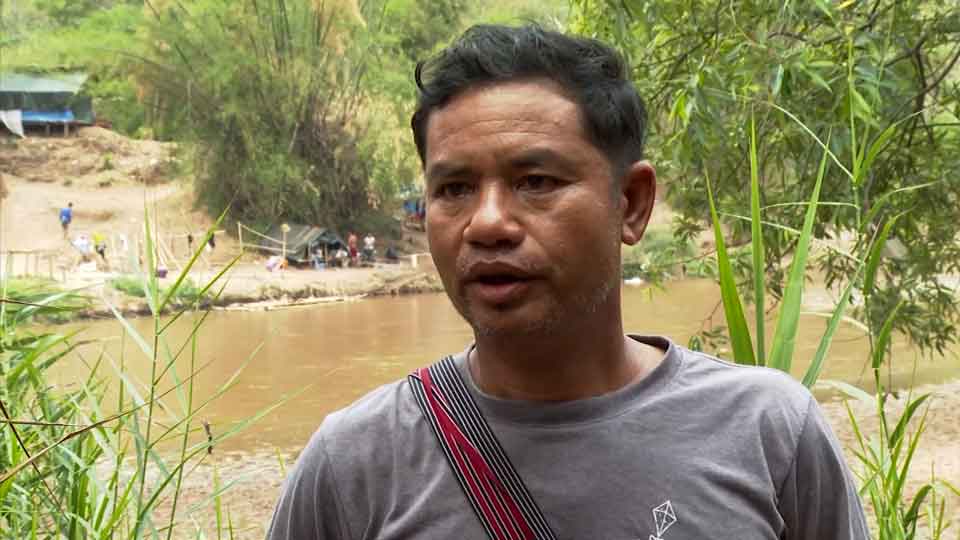
Life in makeshift tents
Months of living in harsh conditions have taken a toll on the internally displaced persons (IDPs). But they have nowhere else to turn. "We have to sleep on hard floors, but we have no other choice," says one woman who carries her baby across the river to get supplies. "Near my home there is always fighting. The hardest part was that we had to run for our lives with small children. We don't dare going back," she explains.
"I've never experienced anything like this in my life. When it is raining, I cannot sleep the whole night. I just sit," relates another woman. "My child is very small and she is frequently getting sick. The hardest thing is having to rely solely on donations for food."
Now the monsoon season has arrived with heavy rain and flash floods, people are worried that the rising water level will make it harder for them to cross the river for supplies.
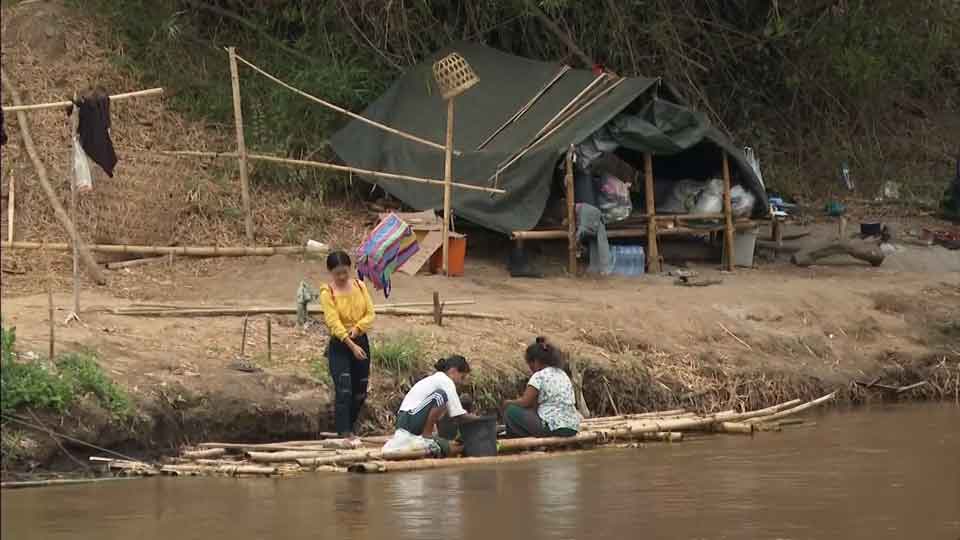
Healthcare problems
Crowded living conditions, poor sanitation and shortages of food and clean water are causing health problems. There is also a lack of access to medical care, with pregnant women among the most vulnerable. Pahe Paw, 32, was six months pregnant when she fled heavy artillery attacks in February.
"I had to walk all morning in this condition to escape the shelling at my village and get to the Thai side. I was so frightened of getting hit," she recalls. "I had to flee because there were no midwives or doctors near my home to help me give birth." Pahe Paw remains in Thailand and her baby is expected to arrive during June.
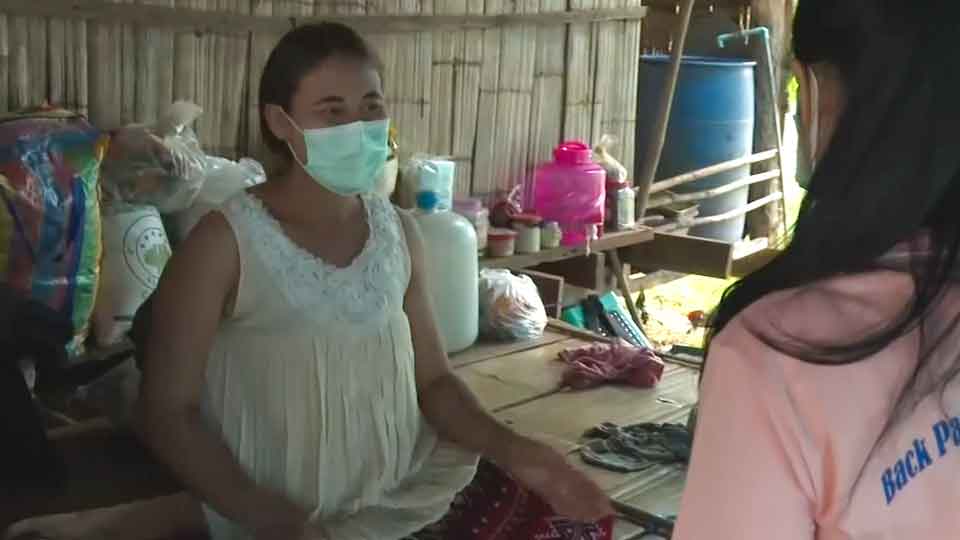
The Back Pack Health Worker Team (BPHWT), a group of healthcare workers, is sending mobile teams to help. Mose Mose Win, the group's maternal and child health specialist, says women like Pahe Paw are sometimes forced to give birth without access to antenatal care or emergency obstetrics — sometimes with fatal consequences.
"They live in uncertainty," she says. "They don't know when they will have to run again. If they give birth while fleeing, both the baby and the mother will be in danger."
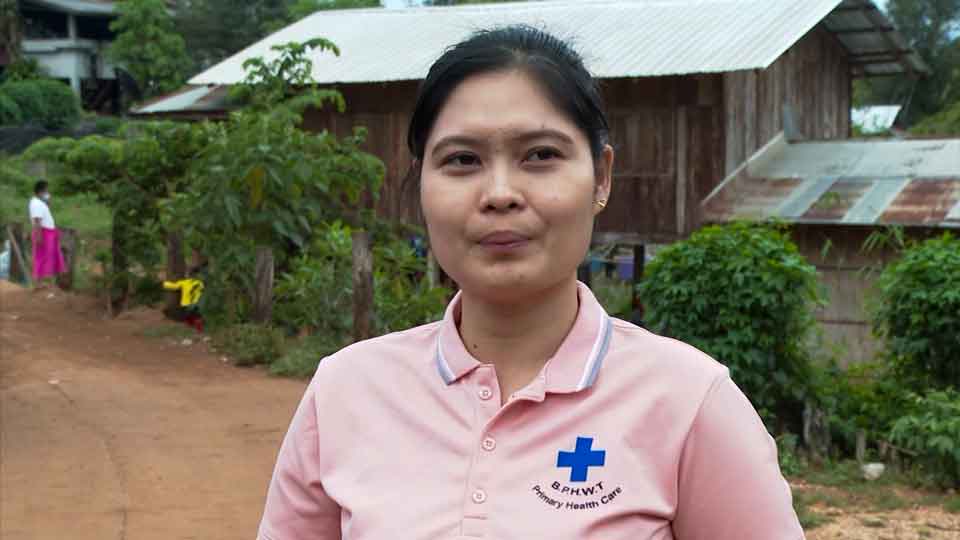
Victims of armed conflict
Deadly battles between the Myanmar military and a combined force of ethnic and civilian armed fighters continue to take a lethal toll on civilians. Among the victims is a 48-year-old laborer who spoke to NHK on the condition of anonymity. He was seriously injured in a heavy artillery attack on a village in Karen State in February, losing his right leg and thumb.
"They came to the school that day and opened fire," he recalls. "A young Karen boy told me to run away and I did, but they fired at me from high ground. The flesh on my leg began to peel off." The man lay in pain for two hours before it was safe for the villagers to help. "I still cannot accept that I've lost a leg," he says. "I was strong and healthy. Now I don't know what to do with my life."
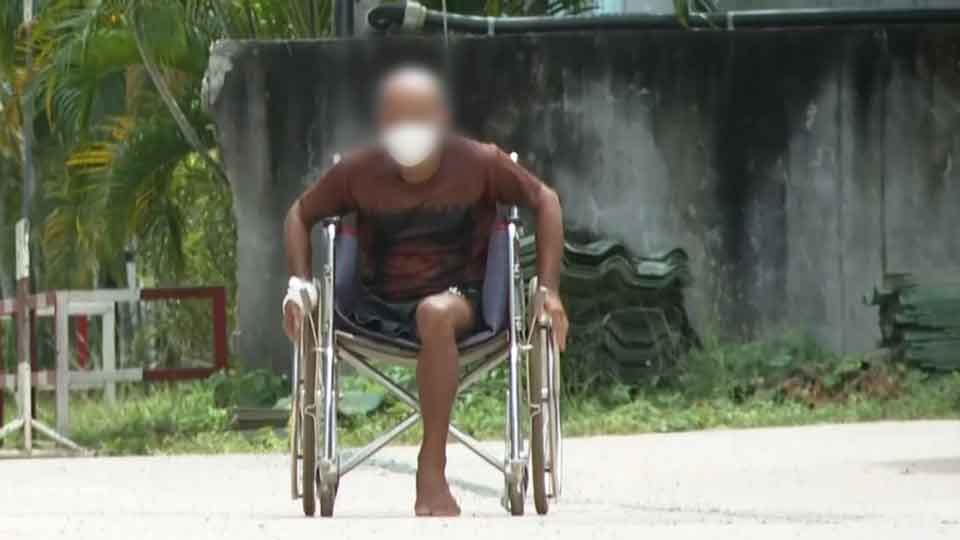
Mae Tao Clinic, also in Maesot, Tak Province, is providing medical care to those affected by the conflict. Its founder and director, Dr. Cynthia Maung, 62, wants governments and international humanitarian organizations to work together to make cross-border assistance more efficient.
"Humanitarian workers need to be able to operate freely," she says. "They need permission for cross-border assistance. That hasn't been established clearly and we need it to happen to improve access to healthcare for the displaced population."
Watch Video 03:36
A report published in May by the United Nations Office for the Coordination of Humanitarian Affairs (UNOCHA) suggests that the unfolding armed conflict in Myanmar has left more than 694,300 civilians displaced since the military takeover in February last year. Access from foreign countries to the conflict areas is difficult and community-based support along the Thai border remains the displaced people's main lifeline. But volunteers say their efforts are only a short-term fix.
